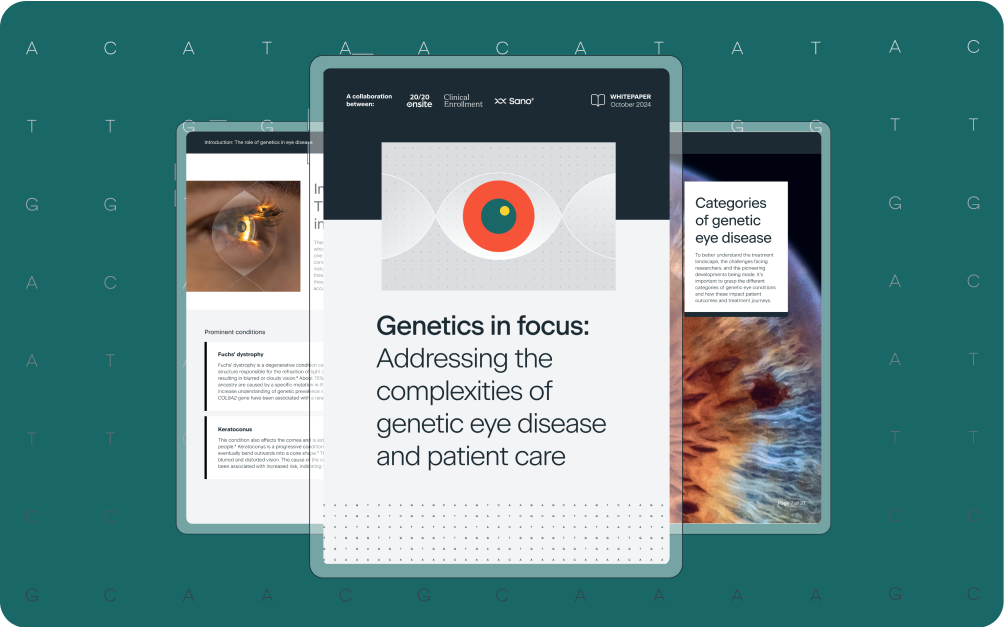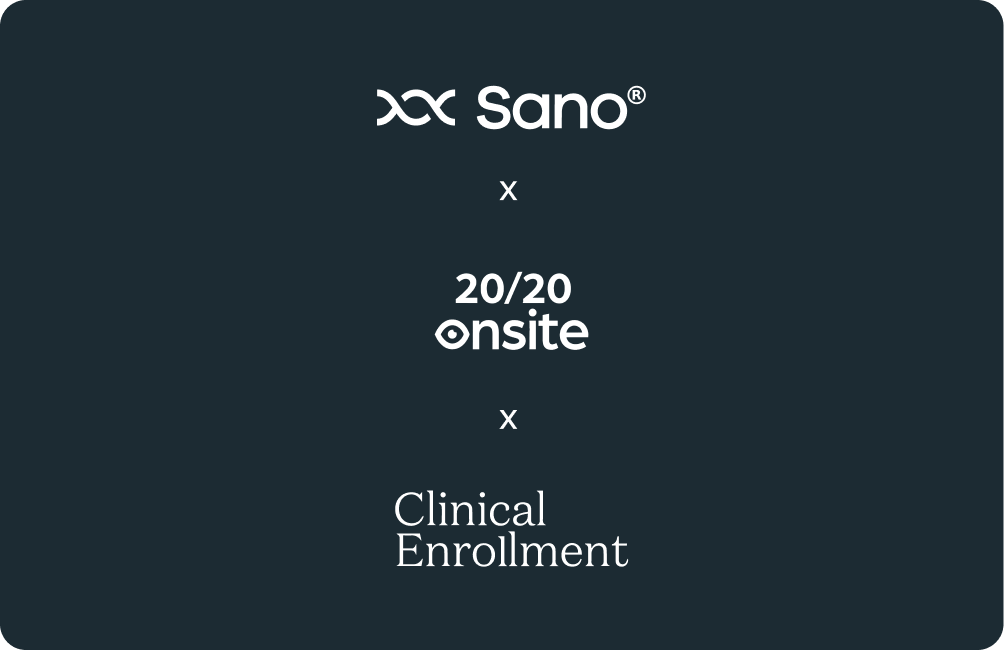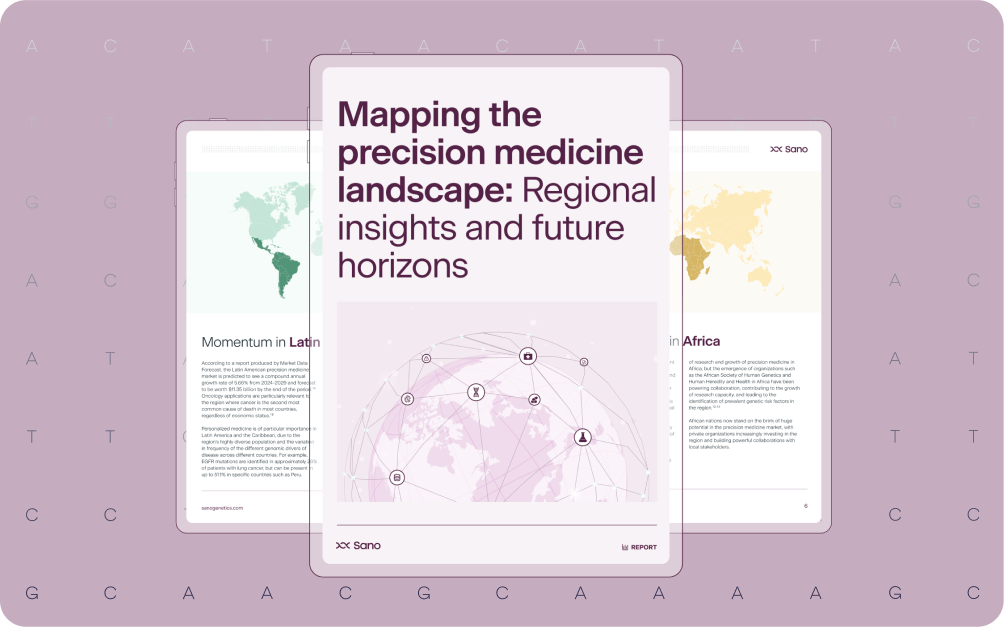Clinical research blog
Explore our blog for insights into the big questions in precision medicine and clinical research.
Genetic eye diseases present significant challenges for patients and healthcare providers alike. Conditions like retinitis pigmentosa, Stargardt disease, and Leber Congenital Amaurosis (LCA) can lead to progressive vision loss, but with ongoing advancements in genetic research, there is growing hope for earlier diagnosis and more targeted therapies.
A new partnership announced today will offer seamless, end-to-end solutions that will drive progress in both patient care and research outcomes in inherited retinal diseases (IRD).
Chronic Kidney Disease (CKD) is a major health concern that impacts millions of people worldwide. While there are environmental and lifestyle factors that increase a person's risk of developing the condition, like smoking or obesity, there are also several genes like APOL1, PKD1, and PKD2, that have been shown to significantly influence CKD risk and progression. Understanding these genetic risk factors opens the door for precision medicine, offering faster diagnoses and more effective treatments for CKD patients.
In the latest episode of the Genetics Podcast, host Patrick Short spoke with Paul Wille, Director of Product Development at Abeona Therapeutics, about adeno-associated virus (AAV) in gene therapy. The conversation covered the advantages of AAV as a gene delivery vehicle, the challenges slowing down its uptake, and its potential uses, particularly in eye conditions. Here’s a breakdown of the key points from their discussion:
In a recent webinar hosted by Lindsey Wahlstrom-Edwards, Partnerships Lead at Sano Genetics, expert speakers explored the complexities of genetic testing and its ethical considerations, particularly in relation to patient care, public health programs, and data privacy. What follows is a recap on “Precision medicine ethics: Navigating genetic screening with care.”
On last week's episode of The Genetics Podcast, host Patrick Short was joined by Dr. Mike Snyder, Director of the Center for Genomics and Personalized Medicine at Stanford University. Known for his work in multiomics and personalized health monitoring, Dr. Snyder shares his career journey and discusses his unique approach of using himself as the first participant in his own studies. Their conversation covers everything from the future of healthcare to the potential of wearables and multiomics data in predicting illness before symptoms show.
Precision medicine is paving the way for better healthcare by providing hope for more personalized and effective treatments for patients. But how is this approach evolving around the world? Our latest report, Mapping the precision medicine landscape: Regional insights and future horizons, takes a deep dive into how precision medicine is shaping healthcare systems across North America, Asia Pacific, Europe, Africa, and Latin America.
Precision medicine is reshaping healthcare by moving away from a one-size-fits-all approach to more personalized care. By understanding each patient's genetic makeup, environment, and lifestyle, healthcare professionals can develop targeted treatment and prevention strategies. In this blog, we’ll explore how this approach is making treatments more effective, identifying at-risk individuals, and potentially reducing healthcare costs while addressing key challenges along the way.
In the latest episode of The Genetics Podcast, host Patrick Short welcomes Dr. Lon Cardon, CEO of the Jackson Laboratory, to discuss his career journey, the rise of genome-wide association studies (GWAS), the shift from candidate gene studies, and the future of drug discovery in both rare and common diseases. With a career spanning academia, industry, and now leading one of the most iconic genetics research institutions, Lon shares his insights into how the field of genetics has evolved and what lies ahead.
While precision medicine holds great promise for both patients and the growth of global markets, there are significant obstacles to be overcome to enable its widespread adoption in a context which ensures equality of access. In this blog, we’ll explore how mind-bending volumes of data, a lack of trained specialists, and the huge costs of drug development all pose challenges which must be addressed to ensure successful implementation of precision medicine strategies internationally.










